Heartache and hope
Stories from the Ukrainian border
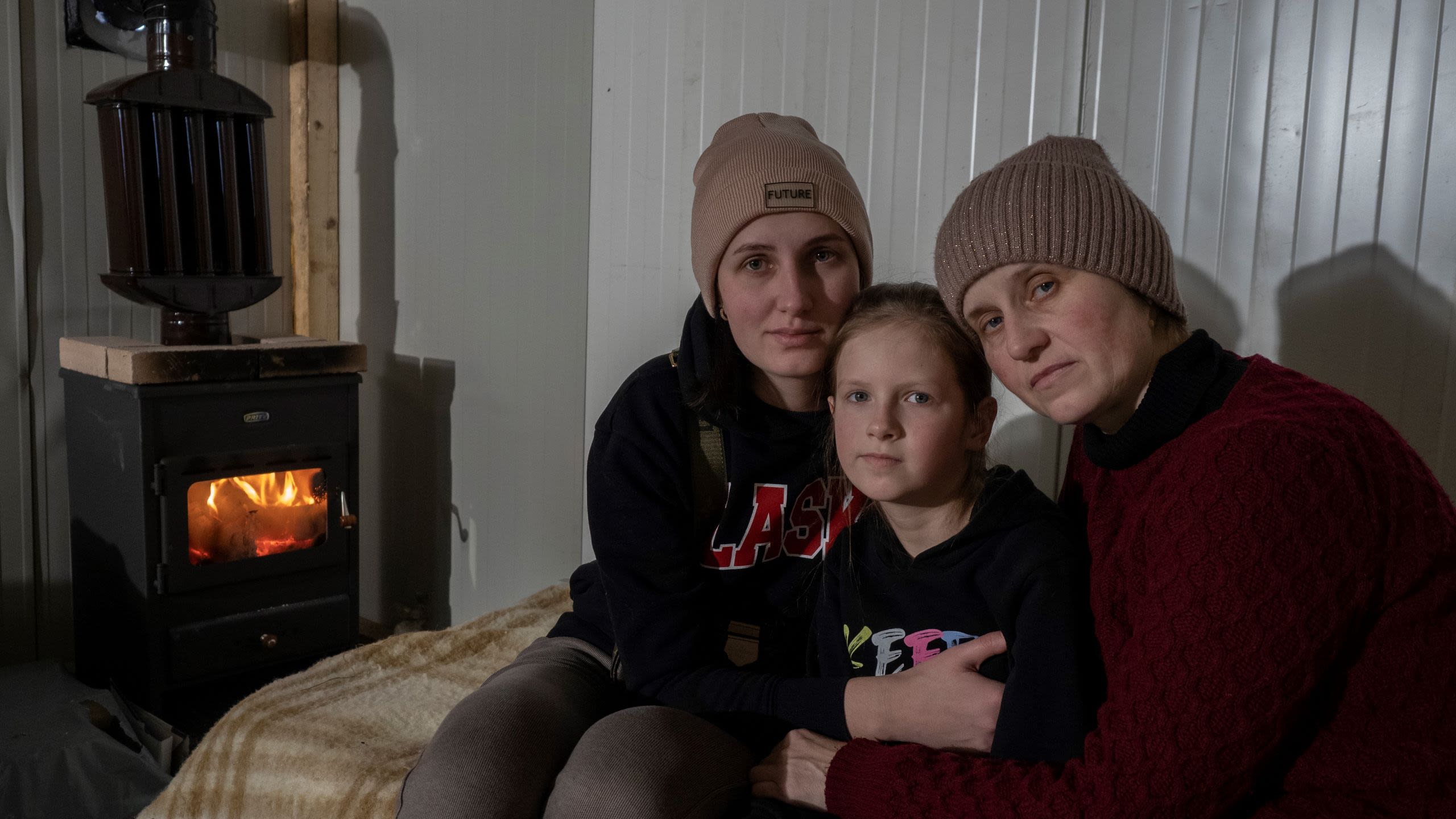
They have experienced terrifying ordeals in their home towns and villages. They have undertaken long and dangerous journeys to reach the border. They have left loved ones far behind.
Millions of people have fled Ukraine since the war began on 24 February 2022. On a recent visit to the border crossings in Romania and the Republic of Moldova, we met some of those who had made the heart-wrenching decision to leave their country.
Here are their stories.
“It became a very sad city”
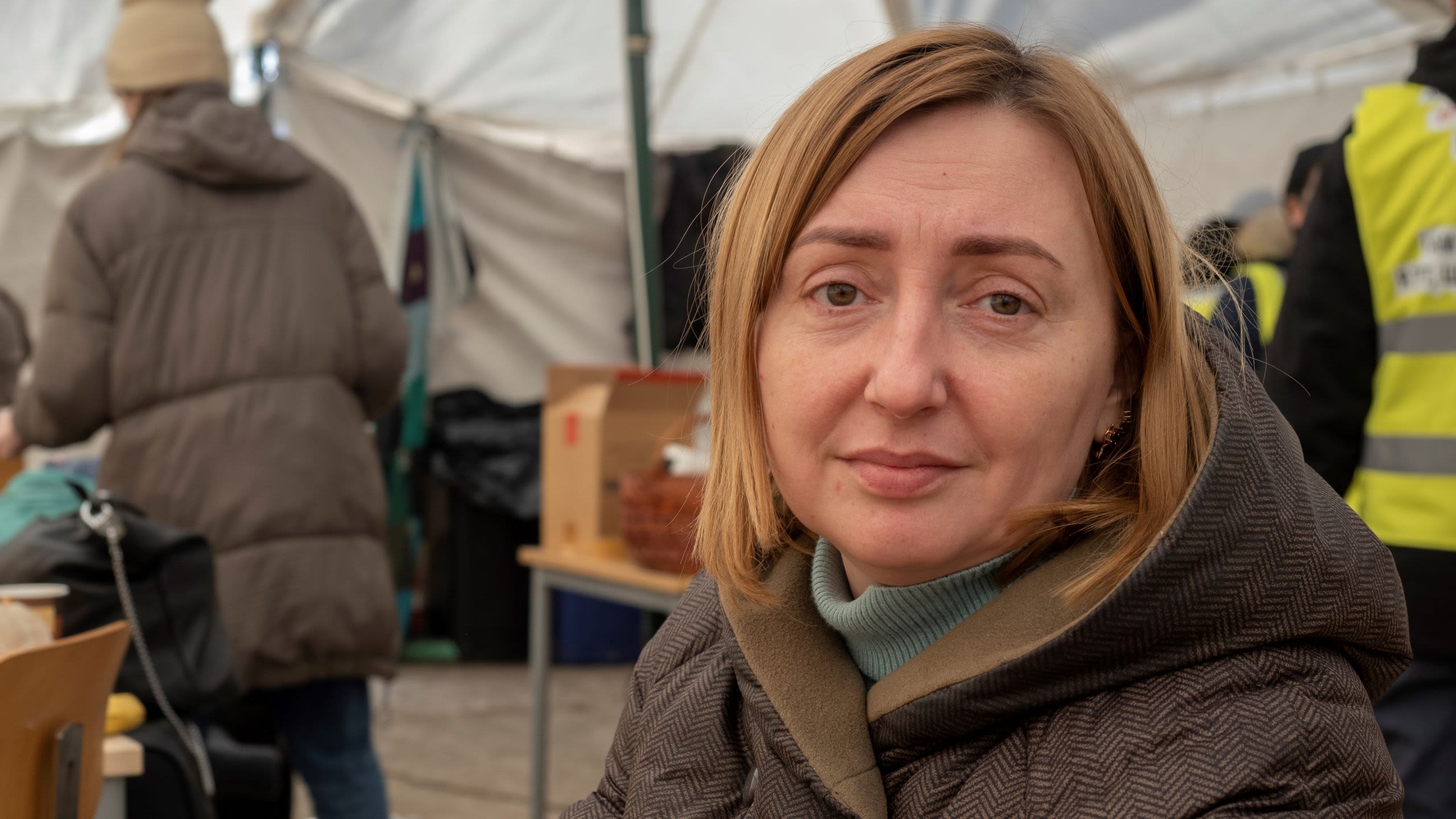
Olya had travelled to the Romanian border with her two children, Makar, 7, and Bogdana, 5. Fatigue and stress mingled with relief in her face, as she rested in one of the heated tents at the border crossing.
Sipping a hot cup of tea, with her children playing nearby, Olya told us about her hometown of Brovary and everything she had left behind.
“The day before the war I was at work, and it’s maybe strange, but I did a video of my city! I was sitting in the bus and we were moving towards my home, and then I made the video from the street.
“There were many cars, many lights, many people. And I don’t know why I did it, because I’ve not done it before…and now this video stays in my phone to remind me of another life.”
“Of course, we felt some pressure before the war, but we did not believe it would start. We did not think it could be possible in our time. All my friends were saying ‘No, no, it will not happen’ – almost nobody believed in it.
“My city is very recently developed, with many new buildings. Many people came to live there. And when the war started, it became a very sad city. Many people ran away. It’s become sad because this city has another face. A big population, many cars, many factories, many workplaces.”
“My husband stayed at home. He is like a volunteer, but he is helping. He is a teacher – he never was military or anything like this.
“I call him every day. He says everything is okay. He doesn’t show me his true emotions. I understand by his voice that he’s very tired, but he doesn’t show me, he doesn’t tell me. I think it’s better than if he started to express his sadness.
“I have an amazing love for my country and for the Ukrainian people. I hope, and I know, that everything will be good in Ukraine. I wish for peace in my country.”
“We slept underground or in the hallway”

Victoria, 29, crossed the border into Romania with her mother and her eight-year-old daughter, Sonia.
As she and her family warmed themselves after their long, cold journey, she told us about the “rule of two walls” and the reality of life in wartime.
“We are from the city of Kryvyi Rih.
“We slept underground or in the hallway on mattresses. This is the rule of two walls: if something happens, we will be safe*. Our evenings were without light. After the war started, it was hard to find food in the markets.
“We started to be scared, because we had a lot of bomb alerts. The children were being evacuated all the time. It was a nightmare.”
*The “rule of two walls” describes a safe room in a house, where people can hide from explosions. There should be at least two walls between the person and the street: the first wall takes the main force of the explosion, while the second wall absorbs any shrapnel.
“All the sirens, the bombings, the noise were unbearable to us. With my husband, we decided that my mum, our daughter and I needed to leave Ukraine.
“It was hard to find transport to Romania. All the train stations were full of people and you were not allowed to have more than one bag.
“My daughter is in 2nd grade. She isn’t afraid, because she doesn’t understand. For her it is like an adventure. We were in a queue and she started to sing and play with a cat!
“I want to go home. I really don’t understand how it’s possible that I left my country because of war in the 21st century.”
“We crossed the river on foot”
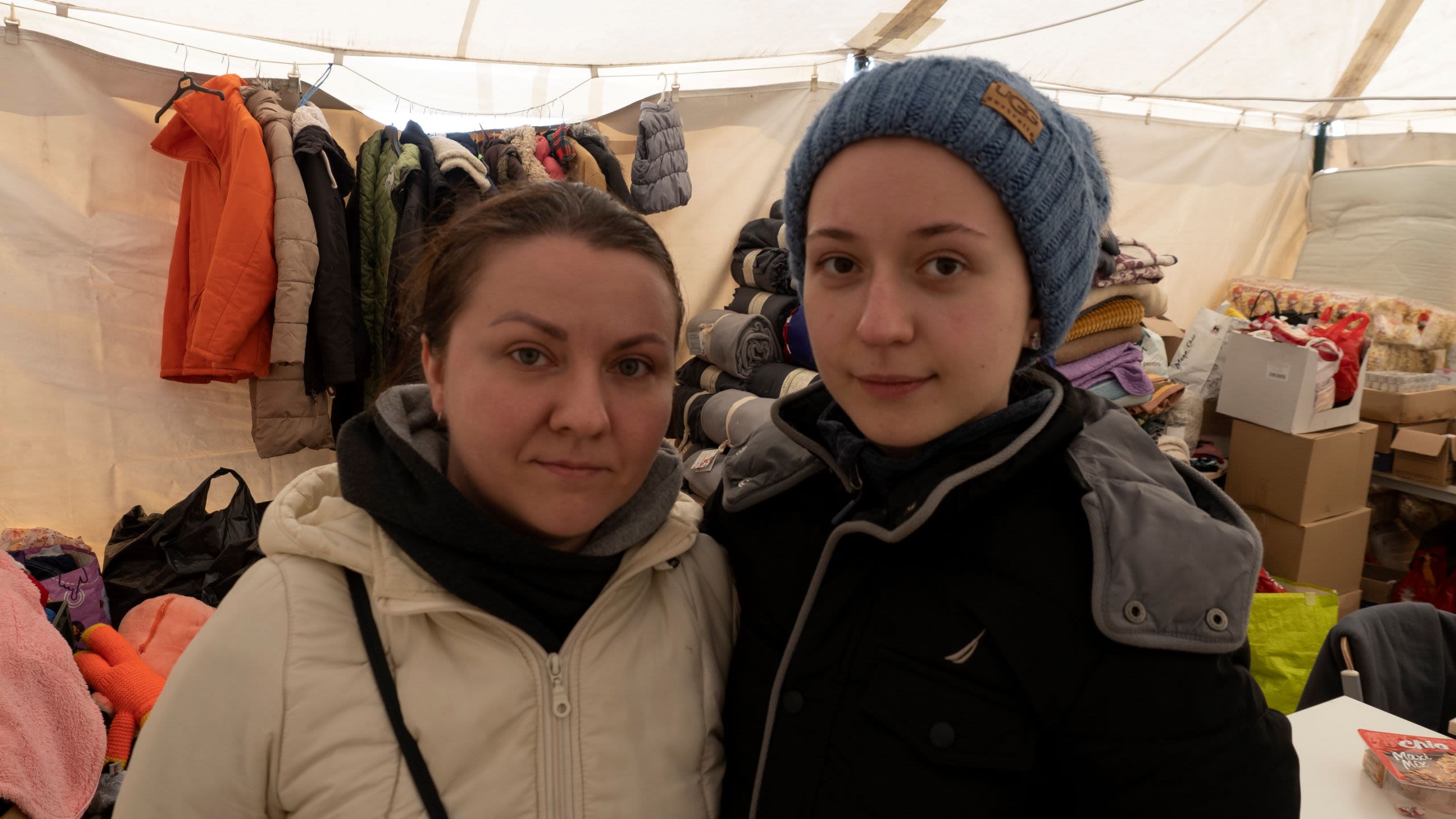
Julia, 33, and Inga, 24, are cousins from the Kyiv region. We met them at a border crossing in northern Romania, where they had just been reunited for the first time since the war began.
The experiences they had been through were clearly still raw, the memories vivid. We listened as first Julia, and then Inga, told us about their terrifying journeys.
“We lived near Kyiv. We got the possibility to leave in the first hour when everything started, because the first bomb was just under my house. We were very afraid.
“We took an hour to gather some things, some documents, and then we went. We were driving to the border for 24 hours, and then we spent two days more at the border. There were very big queues, 10 km, nothing was moving. It was awful.
“My mum was the driver. I couldn’t help her because I didn’t know how to drive. She went three days without sleeping, without leaving the car. When we got to Romania and were driving to the hotel, she fell asleep three times. We were very lucky that nobody was on the roads at the time except us.”
Inga takes up the story:
“My village was occupied and I couldn’t leave. We had neither electricity nor water – nothing. It’s a small, small village with what we call “dachas”, so people come there just to spend the summer. The water supply needs electricity to function. But we found a well near one of the houses and we took the water up by hand.
“Then we got an opportunity to leave, because several bridges had been destroyed to stop the soldiers entering the nearby villages. There was a river, and the Red Cross gave us the green corridor*, and we had to cross this river using the broken bridge.
“There was a huge group of people – approximately 300 people. We were all waiting for that corridor to open. And then we crossed the river on foot, without trousers, and with our sacks on our backs.
*A green corridor, also known as a humanitarian corridor, is a safe passageway allowing civilians to escape a war zone. It typically involves a temporary, localised ceasefire and is open for a short period of a few hours.
“When we crossed the border, we were so tired. We couldn’t think of anything but to have a sleep, after spending two days in the car.”
“We want to return to Ukraine, if our homes have not been destroyed. But anything can happen with that. We’re just hoping to return.”
“It’s an injustice at the end of our lives”
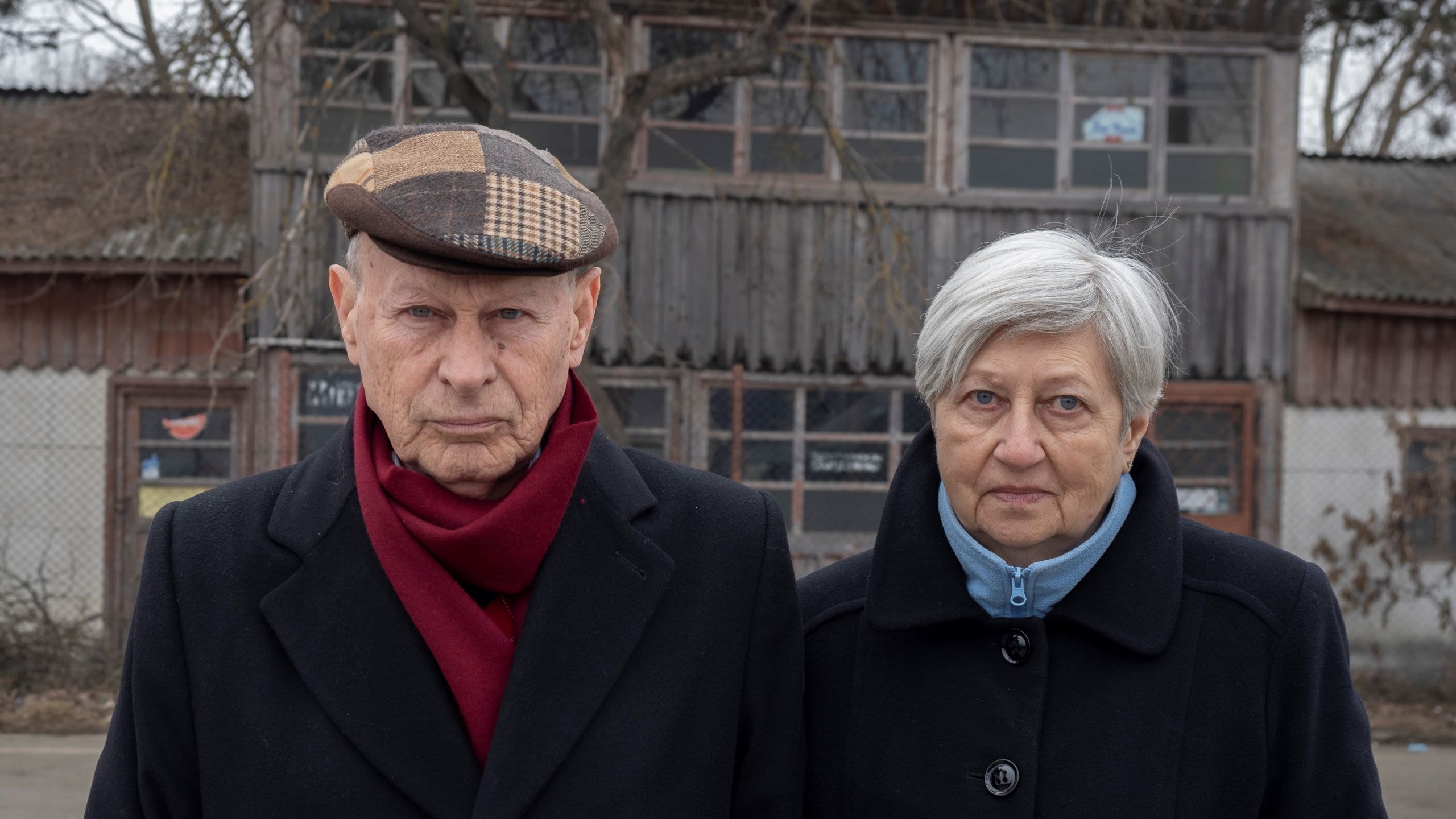
Elena, 73, and Igor, 76, are experiencing a terrible déjà vu. Originally from Luhansk, in eastern Ukraine, they fled their home for the first time when the conflict in Ukraine first erupted in 2014.
They settled in the southern city of Chernivtsi, expecting to live out their days in peace. But it wasn’t to be. Genteel and quietly spoken, Elena told us of their deep dismay at being forced to flee once more.
“Our days, until 24 February, were peaceful. Nobody could imagine that the war would start. In our city there was peace and calm. We are retired. We went to the market, had long walks in the park and read books.
“We didn’t make any preparations to leave. After the war started, we tried to buy some medicines and food. We couldn’t believe that it was happening.
“It is hard to talk about my feelings…”
Igor picks up the story:
“We never thought we would have to leave our country. We have worked for many years for our country.
“In Luhansk we had our house, our friends. Now, we’ve had to leave our home for the second time. I think it is an injustice at the end of our lives.”
Elena continues:
“Why did we leave Luhansk? It is horrible when you hear the noise of the planes. Then the shelling started. When ordinary people began dying on the streets, we understood that we weren’t safe.
“It’s hard to leave your home twice. We are old people. We want to live in peace. In Chernivtsi we have a one-room flat. Our son bought it for us. He told us in 2014 to go to the United States. But we don't want to live in the United States. We want to live in Ukraine.
“War is the biggest evil. A normal person can’t deal with it. I want no war in the world. It seems like a utopia – but I want for people to build their lives how they want, not how others want.”
“My boyfriend sent me a farewell message”
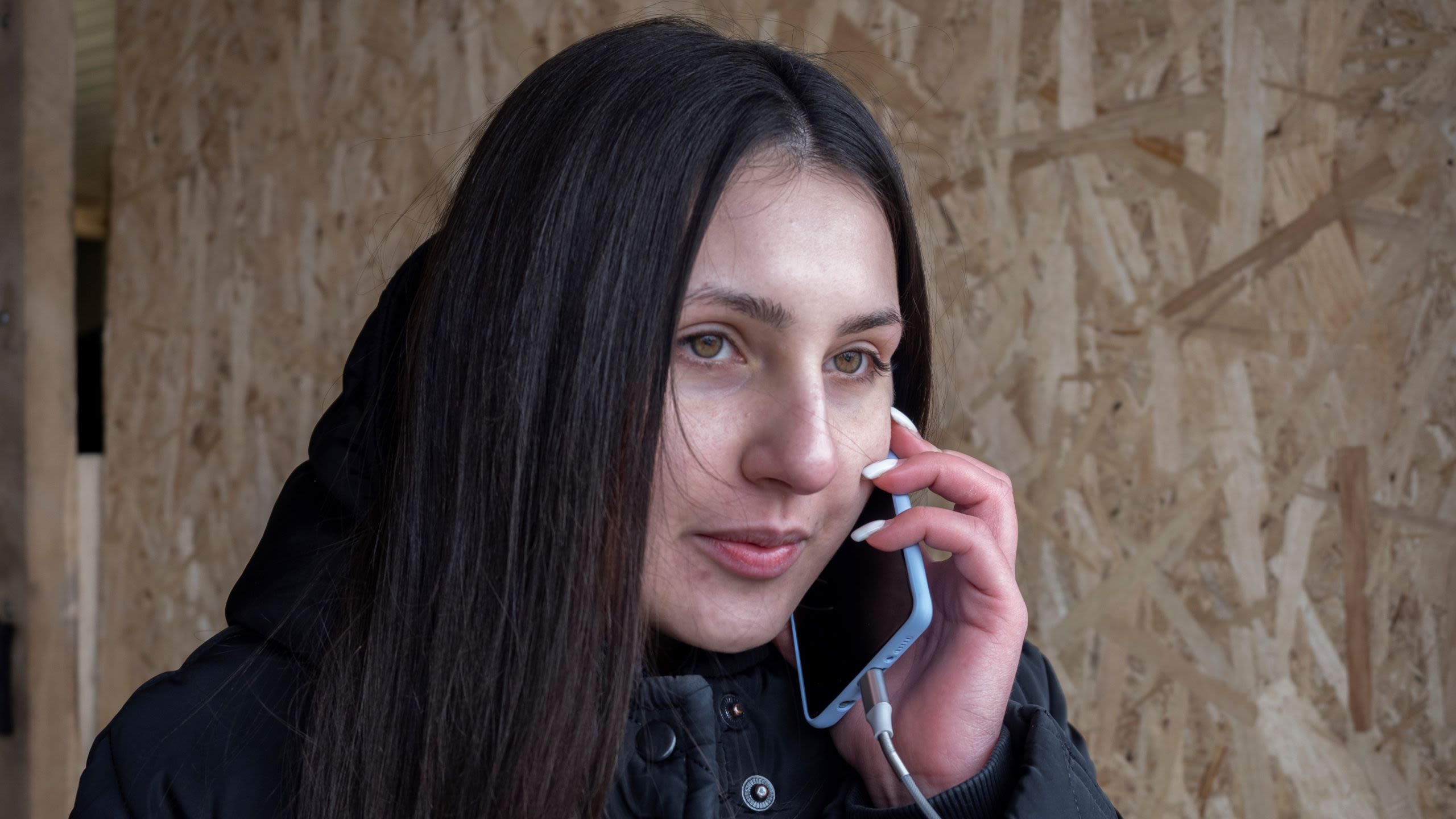
Toma, 23, was sitting quietly in the corner with her suitcase when we met her at the border crossing. As we chatted, it became clear that her friendly, smiling manner belied a deep sorrow.
As she waited for a bus to take her to a nearby refuge, she told us about her anxiety for the loved ones she had left behind.
“I am from Kherson, but I live near Irpin and Bucha. I could see the smoke from my balcony. In two hours I had my luggage packed. Volunteers helped me to leave Ukraine.
“My family is in Kherson. We are nine children, and I am the fourth. They want to leave the country, but Kherson is surrounded by soldiers. They are waiting for the green corridor, but in another town, people were shot in this green corridor. So, now it isn’t safe to leave.
“My boyfriend, he is fighting. He fights as a volunteer, because he is not a soldier. He convinced me to leave the country, because for him it was too hard to fight and to worry about whether I was safe.”
“The first few days away from my boyfriend were really hard, because I was thinking only about how he was. I cried a lot. I was hysterical. I am still anxious now, but my brain has adapted to it.
“We had a situation when Kyiv was bombed. After 30 minutes without hearing from him, I was really anxious. My boyfriend sent me a farewell audio message. He told me how much he loved me. I was crying all day. After some hours he managed to get a connection and said that he’d had an anxious moment, but that now he was okay.
“For two days I was without sleep.”
“I was thinking that emotionally I would feel better in Romania. But away from my family, I am really worried because I don’t know how they are.
“I think that after two weeks I will go home. I can’t stay away from my family for too long.”
“I miss the Ukrainian air”
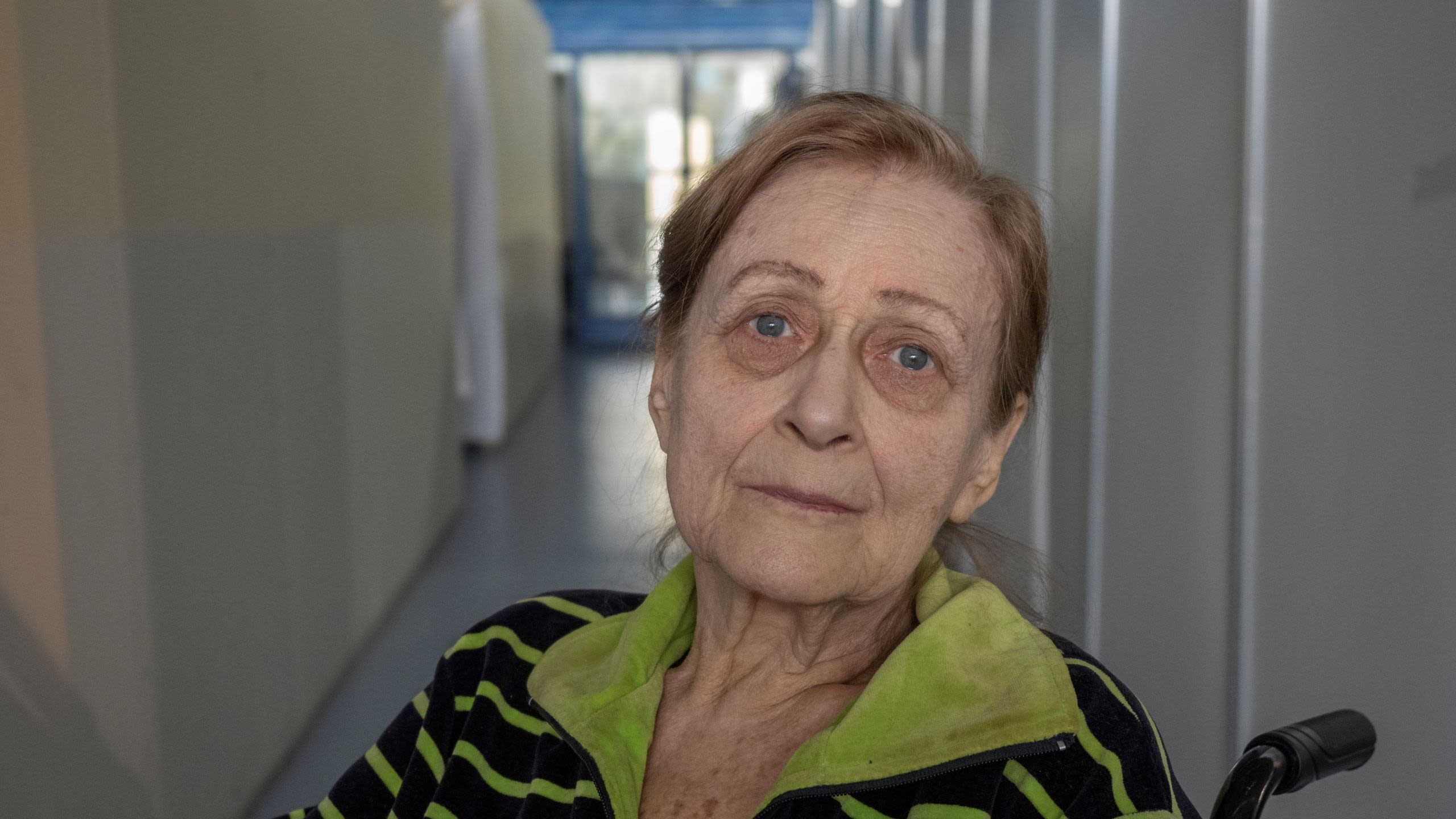
When Victoria speaks, it’s easy to tell she used to be a musician and conductor. Her words and gestures are colourful, expressive and full of feeling.
An 82-year-old wheelchair user, she endured a 20-hour journey on a packed bus to reach the Moldovan capital city of Chisinau. It was physically gruelling, but Victoria’s spirit was undimmed.
“We had thought that it would be over quickly. I had the idea that I would stay underground, make friends with the rats for a few days, and that would be all.
“Then, my student called me and said that in 30 minutes we needed to be ready to leave our home. Our town was being bombed and there was a lot of noise.
“We travelled from Kharkiv to Dnipro by bus. There were about 70 people inside and we started to talk to each other, to share our contacts. We were like one big family. When we said goodbye, we cried. We were people from different nationalities – Ukrainians, Russians, Jewish, Tadzhiks. We hugged each other and cried.
“Our trip was 20 hours. I felt squashed. When we arrived in Moldova, I felt like I might feel after fainting. I had no physical or emotional reflexes. I had no emotions.”
“The whole planet has lost a lot, not just Ukraine and Russia. Human beings are the most reasonable creatures, but unfortunately not all the time. This war is a misfortune.
“My house is in Kharkiv. I have a lot of students all around the world and they can help me. I want to go home. We don’t have a plan, but we don’t want to go somewhere else.
“I think that if your heart is strong enough, you will be positive. It is not so important how you look on the outside, whether you can walk yourself or whether you need a wheelchair. Everything is about the energy that you have inside.
“I miss the Ukrainian air. I want to go home to Kharkiv.”

